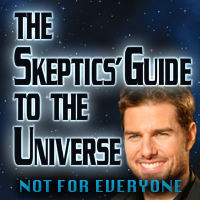My wife, constantly on the lookout for ways to reduce clutter and organize our home, took an interest in the new e-book reader from Amazon, the Kindle. She spent a good amount of time looking into it and other e-book formats, and given the rate at which our bookshelves expand, it makes sense to consider it as an option. I’ll admit I tried to be noncommittal while she talked about it, but, ultimately, I’m a Luddite when it comes to books. I like my printed page. There are a lot of reasons for it, and I’ll leave what I think is the strongest argument for the last. It’s a killer, in my opinion, but I think the emotional appeals have to come first.
If there is one thing that has dominated my personal history more than anything else, it is a love of (or, as some would call it, “an unhealthy obsession about”) books. One of my earliest memories is of protesting that Mom and Dad were about to throw out some old volumes to make space. I argued, cried, and cajoled, but they insisted that they were only taking up space, and no one was reading them. To fight that argument, I grabbed the top one and sat down to read. These weren’t my books, mind you, or even children’s books. They were old, musty novels. I could barely make out a word here and there through my tears, and didn’t understand a bit of what I was actually managing to read. My parents eventually won the argument based on that, but it sticks in my mind as one of my first major anxiety freak-outs. I couldn’t have been more than six or so.
Now, given that I had such an attitude so early in my development, it’s natural that I’d work on accumulating a library. I’m a pack rat anyway, but books virtually never leave my personal gravitational field. There’s something about the most trivial of words that becomes special when it gets written down. It’s been transmitted, and has the potential to then be reread as long as the page holds up. The printing press is what made the world what it is today. It’s how the world exploded from darkness into light, making it impossible to keep an idea hidden away or suppressed. That truth has always burned brightly in my mind; a printed word is a free word. I still have virtually every book I’ve ever owned, barring accidental destruction and loss. I don’t think I’ve ever willingly thrown one out. Even the silliest, most formulaic story or screed has some value to impart by its very existence. As much as I find pleasure reading online, I find it hard to make the same connection with a computer or device.
A second personal factor is the feel of the book itself. Books aren’t sterile. They gather dust, their pages yellow with age, handling wears them down; they are dropped, bent, spilled on and otherwise abused. It gives a book life (literally, in some cases). Some books become imbued with a sense of familiarity that makes them treasured to a single person. A folded page here, a note or underline there; that’s your book, your reminder, your story woven into the book itself. They become more than what they began as; they become mnemonic devices that remind us of the significant things that happened while we read them, or even just remind us of the pleasant time we had the last time we sat down and flipped those same pages. Flipping pages is an engrossing tactile sensation – the very fact that we must do so to move on increases tension, drama, and humor in a good book, when put to use by an author or illustrator. Some of this argument is well-summed up by a fictional character, Rupert Giles (the relevant part is around 44:28).
Ultimately, though, the biggest case to be made is one of obsolescence. The printed word stands the test of time; to this point, no other information storage technology has lasted more than a few decades. I have cassette tapes that play virtually nowhere. VHS is dead. DVD is giving way to the next generation of video. New computer compression formats vie constantly for position in a crowded marketplace; choose incorrectly and your files are useless. I think the best illustration here is one from my own experience. About ten years ago, I was part of the student government at my college. In the past couple of years, the yearbook, run by my fraternity brothers, for the most part, was a pile of shit. They wasted money, botched simple information, and basically ruined a couple of editions through sheer incompetence. The proposal was made to expunge them, turn the endeavor over to the media group, and produce a video yearbook. I fought one aspect of that plan tooth and nail. I didn’t care that my friends were being dragged through the coals; they had blown off responsibility entrusted to them. I didn’t care that it was being turned over to someone else’s pet group, as long as they did a solid job. What I objected to was the replacement of a hardcover printed book with videotape. I lost out, by an overwhelming majority. Now, I can go to my father’s shelves and pull out his yearbooks from half a century ago. He can pick out a name and turn straight to that person. Individuals, groups, and specific memories are easy to find, which is especially crucial because one doesn’t necessarily give a damn about everything in that book. In my own yearbooks, there are probably less than a dozen people I care to remember with any depth, though I can pick out most anyone I choose to recall. The people who have that video yearbook have no such surety. That college yearbook on videotape makes quick search impossible. Even if you know where to run the tape to your favorite parts, you wear it out rapidly; now, just a quick decade later, it’s even a hassle just to look at it at all. Admittedly, technology does begin to make up for this as time goes on; DVDs are easier to search and divide up into relevant chunks, but even they make quick searches harder than a simple book, and DVDs will be gone before long, too. My books may last a century or more; some already have. A reader will likely never be able to say that. I can pass my books to others, loan them out, trade them, sell them, or keep them as I see fit. I can’t do that with a reader. I can hold a page on my book and flip back to reread other passages, even look at other books. I can easily move between multiple books (as I often do, spread about the house and work). I just don’t see that happening with a single piece of hardware.
A Kindle, or something like it, may change the way the world reads. I don’t know that it’s a good thing. Technology ages, fails, and is replaced at a rapid pace, but the printed word reaches out over centuries and millennia. Over-dramatic, I know, but it’s the truth.
Subscribe to:
Post Comments (Atom)






3 comments:
I just want to clarify. I never have asked to to dispose, get rid of, or otherwise expel any of your books, nor did I suggest to buy a Kindle for you. This was for me. Period. Ptttthibit.
I never said that you did ask me to expel any of my current items. I would not expect you to. Given that you were talking about it, I of course then thought about it in terms of my using one. This was more my general opinion on the item, and readers in general. I can see, for myself, something along these lines for magazines and newspapers -- transient material that has a limited shelf life and that gets renewed on a rapid basis. But to replace books going forward, I don't see the appeal.
There is a hole in your argument about a reader lasting a hundred years. Even now, you can buy converters that will change your old tapes into mp3 format (for music) or rip video to DVD. In fact, ripping a video tape to DVD actually removes your quick-search argument, since you can easily build in scene selection with labels telling who's where. Also, the new format that DVD is giving way to is just a better encoded DVD, and blu-ray players play older format DVDs.
As to a book lasting a hundred years, I'll make a WAG here and say that there are a hundred thousands books that don't survive the ravages of a hundred years' time to every one that does (in readable condition, anyway). That number could be even higher. And yes, I realize that you take just as good care of your books as I do, but the last time I checked, you can't stop natural disasters from occurring. If you have two hundred books on a Kindle or other reader, then it's easy to grab that thing on the way out the door. Try doing that with two hundred hardback books. You'd break your spine.
Paper books are fragile and expensive to create, transport and maintain. At least relatively speaking. While a digital format may seem even more fragile (easily erased, etc.), it's distribution is trivially simple. For example, every digital music file I own is in three separate locations and has a physical (CD) backup as well, meaning that the chances that I'll lose them all are small. And if the last two decades are any indication, even when a new digital format comes along, it will be simple enough to convert to the newer format.
Post a Comment